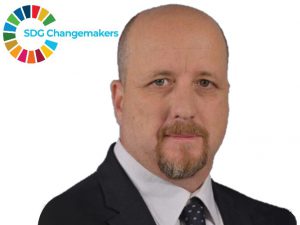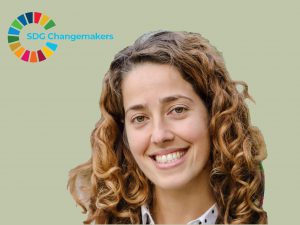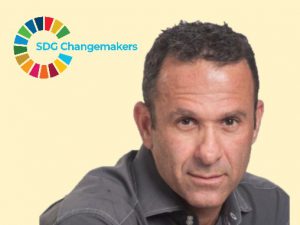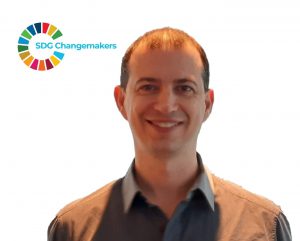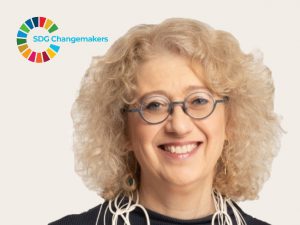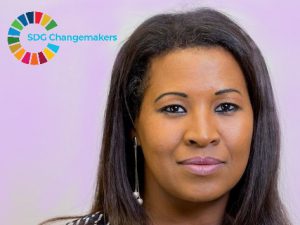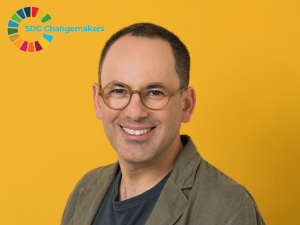Commissioner for Equal Rights of Persons with Disabilities (2016-2021)
Ministry of Justice
SII: Please briefly describe your work
AT: The Commission for Equal Rights of Persons with Disabilities is responsible for implementing the 1998 Equal Rights for Persons with Disabilities Law and other laws concerning persons with disabilities. Upon ratification of the Convention on the Rights of Persons with Disabilities by the Israeli government in September of 2012, the Commission was appointed for promoting the CRPD and monitoring its implementation.
The Commission acts to prevent discrimination and promote the inclusion of persons with disabilities in Israeli society, as citizens with equal rights and responsibilities, allowing full participation in all areas of life. The Commission acts to advance accessibility, employment in the open market, community living, inclusive education, inclusion in culture and leisure, legal capacity, parenthood, etc. We work to raise awareness and fight stigma and prejudice. We act through legislation, legal action, promotion of policies and enforcement, as well as receipt of professional opinions, complaints and queries on behalf of persons with disabilities. We likewise utilize media and new media, distribution of materials, courses and training while collecting data and monitoring for the benefit of those with disabilities.
SII: Name three principle values that you associate with your work?
AT:
- Ensuring equal rights of persons with disabilities and fighting discrimination. This means providing the support and accessibility needed and breaking down barriers as well as negative attitudes in order to make sure that people with disabilities can participate equally in every area of life.
- The true inclusion of people with disabilities in society, without segregation or marginalization.
- Ensuring the rights of those with disabilities to make their own decisions out of a wide array of choices in all fields of life. For example, it is important that they will be able to choose where to learn, where to live and where to work.
In order to achieve these goals, we need to work closely with many partners – government offices, municipalities, NGOs, the private sector and individuals.
SII: What particularly motivates you to make a difference?
AT: People with disabilities constitute 20% of society. They are part of each and every family or may be so in the future as the population ages. Therefore, making Israel a better place for persons with disabilities means we are working to make Israel a better place for all of us, a healthy society which includes all of its members. Such a society will be a place in which we will be proud to live and raise our children.
SII: What positive impact do you see emerging through your activity?
AT: In the past decade, Israel has undergone a revolution in the area of equal rights of persons with disabilities. The law requiring adequate representation persons with disabilities in public entities (5%) was enacted in 2016, which promoted employment. The Legal Capacity law was amended in 2016 and some important regulations regarding accessibility of schools, personal accommodations for pupils and parents, accessibility of higher education, courses and training were all enacted. The regulations regarding accessibility of existing public places and services came into force, and we see that more and more places are made accessible. The statistical data also shows this change – for example the employment rates of people with disabilities has improved throughout the years and is now 60%, although there is still a gap where the employment level of persons without disabilities is 78%.
Our enforcement powers and the work through litigation has also made an impact, demonstrating that this is a significant issue and one that can be fought in courts. There has also been a shift in public awareness following our large public campaigns as well as major training and awareness-raising projects held by us and other entities. Today we also see many more leaders in the private and public sectors that are using their power to make society more inclusive and accessible. Nevertheless, there are still many challenges and people with disabilities meet barriers and discrimination daily. It is important that people know that there is a Commission and they can turn to us to protect their rights.
SII: Where are you headed in the future?
AT: As I have been in the public sector for some years now, and previously worked as a CEO of a non governmental organization, it is clear to me that significant impact can be made through these roles. I intend to continue to work for marginalized sectors in Israeli society and act to improve Israeli society, whether this will be within the public sector, the non-governmental sector or philanthropy.
SII: What else would you like to share?
AT: All of us – government and citizens alike have a joint responsibility to change society and make it a better place. Everyone can make a difference and impact the lives of persons with disabilities. We each can do something in our community, workplace, children’s school and any other place you can think of. Small changes accumulate to a large scale shift, and they bring a sense of purpose to those who lead it. I see this passion in our workers at the Commission – people for whom the Commission is much more than a workplace. It’s a way of life, a way to make an impact and they choose it over and over again every day.
SII: How did Coronavirus fight impacted you?
AT: The COVID-19 crisis posed a significant challenge to the Commission’s goal of preventing discrimination and promoting the inclusion of persons with disabilities in Israel. The obstacles were truly overwhelming: the virus itself, policy changes, social distancing guidelines, lock downs and the financial crisis all had a negative impact on the lives of persons with disabilities and their families. We had to take multiple actions to protect equality and make sure that the mechanisms put in place to protect equal rights were not being eroded.
Our most important task, of course, was to ensure that people with disabilities were taken into account in all issues. There were multiple challenges: guaranteeing that emergency regulations did not cause additional segregation of persons with disabilities and took the needs of persons with disabilities into account (such as possibility to leave the house beyond the 100m limitation, exemption from wearing mask, if necessary); bridging gaps in information and ensuring its distribution and accessibility (continued operation of the Commission’s hotline, publishing information in Hebrew and Arabic via Facebook and a special website, assistance to relevant authorities with their websites, providing accessible special apps and announcements).
We also acted in real time to form a “round table” in which government and civil society could come together to map out problems and identify solutions, we worked with the Ministries to make sure they provided the needed services (e.g in education and welfare). Finally, we had to work to ensure that persons with disabilities were not discriminated against in guidelines determining priorities for emergency ventilator health care treatment.
As we gradually emerge from the crisis, I am confident that the Commission will succeed in making sure that hard-earned gains in equality for persons with disabilities in Israel are maintained going forward.
More about Avremi Torem
Avremi Torem is the father of 3 children. He has been the Commissioner for Equal Rights of Persons with Disabilities in Israel since April 2016. Previously he was the CEO of the Beit HaGalgalim organization for 15 years, providing a service which enhances social participation of children and adults with physical disabilities. He was also elected to the Drom HaSharon Regional Council, serving voluntarily as a member of the regional assembly, and as an active member in the various committees at the Council between the years 2014-2016. Avremi participated in the Maoz project and the Wexner senior leaders program at the Harvard Kennedy School.


